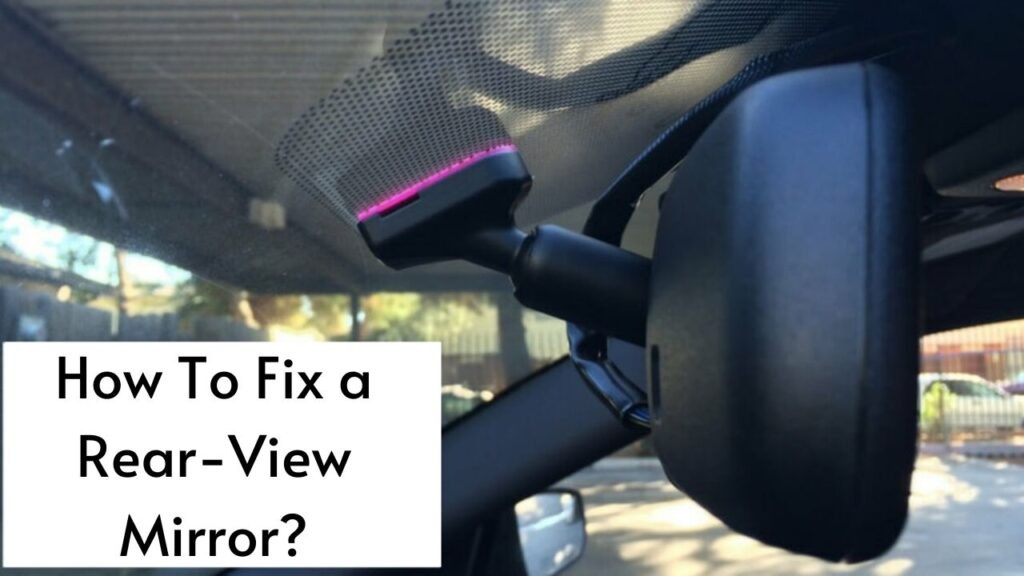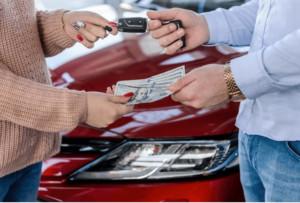How Long Does It Take to Fix a Car Starter: Expert Guide
How Long Does It Take To Fix A Car Starter? Fixing a car starter can take anywhere from 1 to 6 hours, depending on the car model, the starter’s location, and the mechanic’s expertise. At CARDIAGTECH.NET, we understand the urgency of getting your vehicle back on the road, which is why we offer top-notch diagnostic tools and equipment to help you or your mechanic efficiently troubleshoot and repair starter issues. Whether you’re dealing with a faulty solenoid, damaged wiring, or a worn-out starter motor, our comprehensive range of products ensures a swift and accurate fix, minimizing downtime and maximizing your vehicle’s performance with starter repair tools and diagnostic equipment.
1. Understanding the Car Starter System
Before diving into repair times, it’s essential to understand what a car starter does. The starter motor is a crucial component of your vehicle’s starting system, responsible for initiating the engine’s combustion process. It receives electrical power from the battery and uses this energy to crank the engine until it starts running on its own.
1.1. Key Components of a Car Starter
The car starter consists of several key components, including:
- Solenoid: Engages the starter motor and closes the circuit to allow current flow.
- Motor: Provides the mechanical force to turn the engine’s flywheel.
- Drive Gear (Bendix): Extends to engage with the flywheel and retracts once the engine starts.
- Brushes: Conduct electricity to the motor’s armature.
- Armature: The rotating part of the motor that generates the turning force.
1.2. Common Symptoms of a Failing Starter
Recognizing the signs of a failing starter can help you address the problem promptly. Common symptoms include:
- Clicking Sound: A single click when you turn the key, but the engine doesn’t crank.
- Grinding Noise: A harsh grinding sound when the starter engages.
- Slow Cranking: The engine turns over slowly and struggles to start.
- No Response: Absolutely no sound or action when you turn the key.
- Intermittent Starting: The car starts sometimes but not others.
Image: A typical car starter motor, showing its cylindrical shape and electrical connections.
2. Factors Influencing Car Starter Repair Time
Several factors can influence the time it takes to repair or replace a car starter. Understanding these can help you anticipate the duration of the repair process.
2.1. Vehicle Make and Model
The make and model of your vehicle significantly impact the complexity of the repair. Some vehicles have easily accessible starters, while others require extensive disassembly to reach the component.
- Common Sedans: Vehicles like the Toyota Camry or Honda Accord typically have easily accessible starters, reducing repair time.
- Trucks and SUVs: Models like the Ford F-150 or Chevrolet Silverado may have starters that are harder to reach, increasing labor time.
- Luxury Vehicles: Cars like the BMW 5 Series or Audi A6 can have complex electrical systems and require specialized parts, leading to longer repair times.
2.2. Starter Location
The location of the starter within the engine bay can greatly affect the repair time. Starters located in tight or hard-to-reach spots require more time for removal and installation.
- Easily Accessible: Starters mounted on the outside of the engine block are generally easier and faster to replace.
- Difficult Access: Starters located under the intake manifold or near other engine components require additional steps to access, extending the repair time.
2.3. Mechanic’s Experience
An experienced mechanic can diagnose and repair starter issues more quickly and efficiently. Their familiarity with different vehicle models and repair techniques can save valuable time.
- Experienced Technicians: Can quickly identify the problem and perform the repair with minimal wasted time.
- Less Experienced Technicians: May take longer to diagnose the issue and execute the repair, potentially increasing the overall time.
2.4. Availability of Parts
The availability of replacement parts can also impact the repair timeline. If the necessary parts are readily available, the repair can proceed without delay. However, if parts need to be ordered, it can extend the overall time.
- Common Parts: Widely available parts can be sourced quickly, minimizing downtime.
- Specialized Parts: Rare or specialized parts may need to be ordered, which can add days to the repair process.
2.5. Additional Damage or Complications
During the repair process, additional damage or complications may be discovered, which can extend the repair time. For example, corroded wiring or damaged mounting hardware may need to be addressed.
- Corroded Wiring: Can require additional time to clean or replace the affected wires.
- Damaged Mounting Hardware: Broken or stripped bolts may need to be repaired or replaced, adding to the overall time.
3. Average Time to Fix a Car Starter
The average time to fix a car starter can vary, but here’s a general guideline:
- Simple Replacement: 1 to 2 hours
- Moderate Complexity: 2 to 4 hours
- Complex Repairs: 4 to 6 hours or more
These estimates include the time for diagnosis, removal, replacement, and testing.
3.1. Step-by-Step Breakdown of Repair Time
To better understand the repair timeline, here’s a step-by-step breakdown of the process:
- Diagnosis (15-30 minutes): Identifying the issue and confirming that the starter is the problem.
- Preparation (15-30 minutes): Gathering tools, disconnecting the battery, and preparing the vehicle.
- Removal (30-60 minutes): Removing the old starter, which may involve disassembling other components.
- Installation (30-60 minutes): Installing the new starter and reassembling any removed components.
- Testing (15-30 minutes): Testing the new starter to ensure it functions correctly.
Image: A mechanic replacing a car starter in an auto repair shop.
4. DIY vs. Professional Car Starter Repair
Deciding whether to tackle a car starter repair yourself or hire a professional mechanic depends on your skills, experience, and available tools.
4.1. DIY Car Starter Repair
Pros:
- Cost Savings: Save on labor costs by doing the repair yourself.
- Learning Experience: Gain hands-on experience and knowledge about your vehicle.
- Convenience: Work at your own pace and schedule.
Cons:
- Time Commitment: Can take several hours, especially if you’re not experienced.
- Risk of Mistakes: Potential for errors that could damage your vehicle.
- Tool Investment: Requires a set of tools that you may not already own.
Considerations:
- Experience Level: DIY repair is best suited for those with some mechanical experience.
- Tool Availability: Ensure you have the necessary tools, including sockets, wrenches, and a torque wrench.
- Safety Precautions: Always disconnect the battery and use jack stands when working under the vehicle.
4.2. Professional Car Starter Repair
Pros:
- Expertise: Experienced mechanics can quickly diagnose and repair the issue.
- Warranty: Repairs often come with a warranty, providing peace of mind.
- Convenience: Avoid the hassle of doing the repair yourself.
Cons:
- Cost: Labor costs can be significant.
- Scheduling: May need to schedule an appointment and wait for the repair to be completed.
Considerations:
- Reputation: Choose a reputable mechanic with positive reviews.
- Estimates: Get a detailed estimate before authorizing the repair.
- Warranty: Inquire about the warranty coverage for the repair.
5. Cost of Car Starter Repair
The cost of car starter repair includes the cost of parts and labor. Here’s a general breakdown:
- Parts: $80 to $350 or more for a new starter.
- Labor: $150 to $1,100, depending on the vehicle and complexity of the repair.
Factors Affecting Cost:
- Vehicle Make and Model: Luxury and high-performance vehicles typically have more expensive parts and higher labor costs.
- Quality of Parts: Aftermarket parts may be cheaper, but OEM (Original Equipment Manufacturer) parts are generally more reliable.
- Shop Rates: Labor rates vary depending on the location and reputation of the repair shop.
Cost-Saving Tips:
- Get Multiple Estimates: Compare prices from different repair shops.
- Consider Refurbished Parts: Refurbished starters can be a more affordable option.
- DIY Repair: If you have the skills and tools, doing the repair yourself can save on labor costs.
6. Tools and Equipment for Car Starter Repair
Having the right tools and equipment is essential for efficient and effective car starter repair. At CARDIAGTECH.NET, we offer a wide range of tools and equipment to meet your needs.
6.1. Diagnostic Tools
Diagnostic tools help you identify the root cause of the problem and ensure that the starter is indeed the issue.
- Multimeters: Used to test voltage and continuity in the electrical system.
- OBD-II Scanners: Retrieve diagnostic trouble codes (DTCs) to identify potential issues.
- Battery Load Testers: Assess the condition of the battery and determine if it’s providing sufficient power.
6.2. Hand Tools
Hand tools are essential for removing and installing the starter and related components.
- Socket Sets: A variety of socket sizes to remove bolts and nuts.
- Wrenches: Open-end, box-end, and adjustable wrenches for various tasks.
- Screwdrivers: Phillips and flathead screwdrivers for removing screws.
- Pliers: Used for gripping and manipulating wires and connectors.
6.3. Specialty Tools
Specialty tools can make the repair process easier and more efficient.
- Torque Wrenches: Ensure bolts are tightened to the manufacturer’s specifications.
- Jack and Jack Stands: Safely lift and support the vehicle for undercarriage access.
- Wire Strippers and Crimpers: For repairing or replacing wiring.
- Pulley Pullers: For removing pulleys or gears that may be obstructing access to the starter.
Image: A mechanic with a variety of tools used for car repairs.
7. Step-by-Step Guide to Replacing a Car Starter
If you decide to replace the car starter yourself, follow these steps:
- Gather Your Tools: Collect all the necessary tools, including sockets, wrenches, screwdrivers, and safety gear.
- Disconnect the Battery: Disconnect the negative terminal of the battery to prevent electrical shocks.
- Locate the Starter: Consult your vehicle’s repair manual to find the location of the starter.
- Remove Wires: Disconnect the wires from the starter, noting their positions for reinstallation.
- Remove Mounting Bolts: Remove the bolts that secure the starter to the engine.
- Remove the Starter: Carefully remove the old starter from its mounting location.
- Install the New Starter: Position the new starter in place and secure it with the mounting bolts.
- Reconnect Wires: Reconnect the wires to the new starter, ensuring they are properly secured.
- Reconnect the Battery: Reconnect the negative terminal of the battery.
- Test the Starter: Start the vehicle to ensure the new starter is working correctly.
8. Tips for Efficient Car Starter Repair
Here are some tips to help you repair a car starter more efficiently:
- Consult the Repair Manual: Refer to your vehicle’s repair manual for specific instructions and diagrams.
- Label Wires: Label wires as you disconnect them to ensure proper reinstallation.
- Take Photos: Take photos of the starter and surrounding components before disassembly for reference.
- Clean Connections: Clean any corroded connections with a wire brush or sandpaper.
- Use Penetrating Oil: Apply penetrating oil to stubborn bolts to loosen them before removal.
- Torque to Spec: Use a torque wrench to tighten bolts to the manufacturer’s specifications.
9. Benefits of Using CARDIAGTECH.NET Tools and Equipment
At CARDIAGTECH.NET, we are committed to providing high-quality tools and equipment that help you repair car starters quickly and efficiently. Our products offer numerous benefits:
- Precision: Our diagnostic tools provide accurate readings, helping you identify the problem quickly.
- Durability: Our hand tools and specialty tools are built to last, ensuring years of reliable service.
- Ease of Use: Our products are designed with user-friendly interfaces, making them easy to operate.
- Comprehensive Support: We offer comprehensive support and training to help you get the most out of our products.
10. Maintaining Your Car Starter to Prolong Its Life
Proper maintenance can extend the life of your car starter and prevent premature failure. Here are some tips:
- Keep the Battery Charged: A weak battery can put extra strain on the starter, leading to premature wear.
- Avoid Short Trips: Frequent short trips can prevent the battery from fully charging, reducing its lifespan.
- Regular Inspections: Inspect the starter and related components for signs of wear or damage.
- Address Issues Promptly: Address any starting issues promptly to prevent further damage.
11. Real-World Examples of Car Starter Repair Times
To give you a better idea of car starter repair times, here are a few real-world examples:
- Toyota Camry: Replacing the starter on a Toyota Camry typically takes 1 to 2 hours.
- Ford F-150: Replacing the starter on a Ford F-150 can take 2 to 3 hours due to its location and complexity.
- BMW 5 Series: Replacing the starter on a BMW 5 Series can take 4 to 6 hours due to its complex electrical system and specialized parts.
12. Common Mistakes to Avoid During Car Starter Repair
Avoiding common mistakes can save you time and prevent further damage to your vehicle:
- Forgetting to Disconnect the Battery: Always disconnect the battery to prevent electrical shocks.
- Stripping Bolts: Use the correct size socket or wrench to avoid stripping bolts.
- Overtightening Bolts: Use a torque wrench to tighten bolts to the manufacturer’s specifications.
- Incorrect Wiring: Double-check wiring diagrams to ensure proper reinstallation.
- Skipping Diagnostic Steps: Always diagnose the issue before replacing the starter to ensure it is the problem.
13. How to Choose the Right Car Starter Replacement
Choosing the right car starter replacement is crucial for ensuring reliable performance. Consider the following factors:
- OEM vs. Aftermarket: OEM starters are generally more reliable but more expensive. Aftermarket starters can be a more affordable option but may not last as long.
- Warranty: Choose a starter with a good warranty to protect against defects.
- Reviews: Read reviews from other customers to get an idea of the starter’s performance and reliability.
- Compatibility: Ensure the starter is compatible with your vehicle’s make, model, and year.
14. Staying Safe During Car Starter Repair
Safety should always be a top priority during car starter repair. Follow these safety tips:
- Wear Safety Glasses: Protect your eyes from debris and sparks.
- Wear Gloves: Protect your hands from cuts and chemicals.
- Use Jack Stands: Always use jack stands when working under the vehicle.
- Disconnect the Battery: Prevent electrical shocks by disconnecting the battery.
- Work in a Well-Ventilated Area: Avoid breathing in fumes and dust.
15. The Future of Car Starter Technology
Car starter technology is constantly evolving to improve efficiency and reliability. Some of the latest advancements include:
- Start-Stop Systems: Automatically shut off the engine when the vehicle is stopped to save fuel.
- Brushless Starters: Use electronic controls instead of brushes to reduce wear and improve performance.
- Integrated Starter-Generators: Combine the functions of the starter and alternator into a single unit.
By staying informed about these advancements, you can ensure that your vehicle is equipped with the latest and greatest starter technology.
FAQ: Car Starter Repair
1. How long does it take to diagnose a car starter problem?
Diagnosing a car starter problem typically takes between 15 and 30 minutes, depending on the complexity of the issue and the technician’s experience.
2. Can I replace a car starter myself?
Yes, you can replace a car starter yourself if you have mechanical experience, the necessary tools, and a repair manual for your vehicle.
3. What tools do I need to replace a car starter?
You will need a socket set, wrenches, screwdrivers, pliers, a torque wrench, a jack, jack stands, and safety glasses and gloves.
4. How much does it cost to replace a car starter?
The cost to replace a car starter can range from $230 to $1,450, including parts and labor, depending on the vehicle and the complexity of the repair.
5. What are the signs of a bad car starter?
Signs of a bad car starter include a clicking sound when turning the key, slow or no engine cranking, and intermittent starting issues.
6. How often should I replace my car starter?
Car starters typically last between 100,000 and 150,000 miles, but there is no fixed interval for replacement as it depends on usage and vehicle conditions.
7. Can a bad starter drain my car battery?
Yes, a bad starter can drain your car battery if it is constantly trying to engage or if it has an internal short.
8. Is it better to rebuild or replace a car starter?
Replacing a car starter is generally more reliable and often recommended for long-term use, although rebuilding can be cheaper in some cases.
9. What is the warranty on a new car starter?
The warranty on a new car starter typically ranges from one to three years, depending on the manufacturer and the retailer.
10. Can I drive my car with a bad starter?
No, you cannot drive a car with a completely bad starter because the engine won’t start. However, if the starter is only intermittently failing, you may be able to drive it until it fails completely, but it is not recommended.
Ready to get your car starter fixed quickly and efficiently? At CARDIAGTECH.NET, we offer a comprehensive range of diagnostic tools and equipment to help you or your mechanic troubleshoot and repair starter issues with ease. Don’t let a faulty starter keep you off the road. Contact us today at +1 (641) 206-8880 or visit our website at CARDIAGTECH.NET for expert advice and top-quality products. Our address is 276 Reock St, City of Orange, NJ 07050, United States. Let us help you get your vehicle back in top condition!






